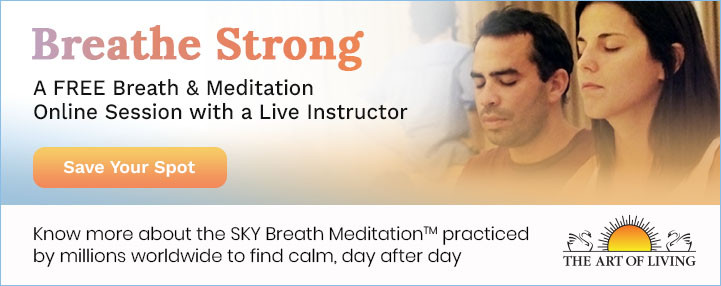Everyone needs a little help managing stress these days. Our comprehensive guide makes that task easy so you don’t have to stress out. Read to learn more.
Knowing how to relieve stress is possibly the most important life skill you could ever have.
- Nearly half of all U.S. adults (49%) say that stress has negatively affected their behavior (American Psychological Association, 2020)
- Eighty-three percent of U.S. workers say they experience stress on the job (American Institute of Stress)
And young adults are experiencing a higher level of mental stress and anxiety than older ones.
- When asked to rate their stress level out of ten, here’s how U.S. adults responded by age group:
- Gen Z: 6.1
- Millennials: 5.6
- Gen X: 5.2
- Baby Boomers: 4.0
- Older Adults: 3.3
(American Psychological Association, 2020)
Stress, stress, and more stress! We need effective strategies to reduce stress, and we need it now. Our comprehensive guide will help you beat, manage, reduce, and overcome stress in all the best ways. Try a few or try them all and you will improve your well-being.
Topics covered:
- 1. Get More Physical Activity
- 2. Follow a Healthy Diet
- 3. Minimize Phone Use and Screen Time
- 4. Consider Supplements
- 5. Practice Self-Care
- 6. Reduce Your Caffeine Intake
- 7. Spend Time with Friends and Family
- 8. Create Boundaries and Learn to Say No
- 9. Learn to Avoid Procrastination
- 10. Take a Yoga Class
- 11. Practice Mindfulness
- 12. Cuddle
- 13. Spend Time in Nature
- 14. Practice Deep Breathing
- 15. Spend Time with Your Pet
- 16. Identify Your Triggers
- 17. Stay Connected
- 18. Stay Active
- 19. Find Your "Pause" Button
- 20. Plan Your Fun
- 21. Reframe Your Thinking About Stress Itself
- 22. Take Control
- 23. Challenge Yourself
- 24. Be Positive
- 25. Practice Meditation
- Related articles
Get More Physical Activity

We already know that regular exercise is great for heart health and reducing cholesterol but it is also good for emotional resilience when it comes to acute stress.
You don’t have to be a triathlete to receive the benefits of physical activity. Walking, yoga, bike riding, and dancing are great options to get more physical activity into your daily routine.
Follow a Healthy Diet
How you feel day-to-day has a lot to do with what you eat. A poor diet and unhealthy habits are fuel for stress. Though there are numerous healthy diets to choose from, many agree that these foods can help you cope with stress better.
- Avocado
- Banana
- Herbal teas (caffeine-free)
- Dark leafy greens
- Carrots
- Yogurt
- Nuts
- Dark chocolate (in moderation)
Minimize Phone Use and Screen Time
Screen addiction is real. And finding a healthy balance with cell phone use isn’t easy, but the benefits certainly make it worth it! With less stimulation from calls, texts, social media updates, and “urgent” emails, you may have less chronic stress and anxiety.
You might try muting your phone for set periods of time (still keeping it nearby) so you can enjoy your time uninterrupted. Or, try leaving your phone in a different room until you can feel more comfortable spending less time glued to your phone. In other words, take baby steps so you don’t stress out about not being attached to your phone.
Consider Supplements
Sometimes a supplement can be a good solution for stress management. Adaptogens like ashwagandha help us adapt and overcome stress and anxiety. But as the name supplement indicates, supplements are an add-on and you will likely need to implement other stress relief strategies.
Practice Self-Care

Self-care has come a long way in the last decade or so. Originally seen as sometimes selfish, it is now an integral part of surviving day-to-day life and maintaining good mental health. Self-care is as individual as we are and could include a walk in green spaces, a massage, reading a book, or taking a silent retreat. Whatever self-care is for you, adding this strategy to your stress management plan is key.
Reduce Your Caffeine Intake
Too much caffeine intake during times of stress may contribute to the duration and magnitude of blood pressure and stress endocrine responses. Think stress hormones and caffeine jitters on steroids! But given the dependency and addiction that can happen with caffeine, it’s best to wean yourself off of caffeine by slowly reducing your consumption. Additionally, you will need to stay well hydrated by drinking plenty of water.
Spend Time with Friends and Family
Sometimes the best company is the company of dear ones. Especially if you’re going through a challenging stressful time. Family members and friends often know how to support you better than you do. Be sure to be selective with your choice of social support and avoid a family member or friend that stresses you out!
Create Boundaries and Learn to Say No
Having a “yes” mind doesn’t mean you cannot set healthy boundaries and say no when needed. In fact, saying yes all the time puts your mental health and physical well-being at risk. You cannot be all things, to all people, all of the time.
If you habitually say yes when you shouldn’t, try postponing whatever you are saying yes to. For example, “I would love to help you right now, but tomorrow (or whenever is better) will be a better time for me”, or ask if you could help at another time. Most people will understand when your plate runneth over!
Learn to Avoid Procrastination
How does procrastination add stress to your daily life anyway? Since most of the things we procrastinate on are things we need to do and may not be so enjoyable, having to do them at the last minute and with less time to do them correctly– we end up adding a lot of unnecessary stress!
Choose one thing that you will not procrastinate on and stick to it. Once you have changed that habit, choose another.
Take a Yoga Class

Yoga has been reducing stress for millennia. Uniting your body, mind, and spirit, yoga postures are highly effective in managing stress. Taking a yoga class ensures that you have all the guidance you might need. The Art of Living Foundation has an online yoga studio you can try out any time you are feeling overwhelmed with stress. Even better, when you want to prevent stress from overwhelming you in the first place!
Practice Mindfulness
Stress has a way of sneaking up on you sometimes. But when you can be more mindful and aware, you start to create a sort of non-stick “Teflon” coating to your mind and body. Though mindfulness as a practice can be overwhelming for some people– meditation, and breathwork can give you more mindfulness as a natural “side effect” benefit.
Cuddle
According to WebMD, when you cuddle with someone you care about, your body releases a hormone called oxytocin that calms you and makes you more likely to deal better with stress. It also can lower your blood pressure as well as lower the amount of the “stress hormone”.
Cuddling doesn’t have to be limited to only people, cuddling your pets also works to calm your anxiety and reduce stress levels.
Spend Time in Nature
The value of connecting with nature is often overlooked unless we are on vacation perhaps. Leaving the office for lunch in a nearby park can do wonders for any work-related stress. Remove your shoes and socks and walk on the earth for added benefits. It worked for Richard Gere in the movie “Pretty Woman”.
Many neighborhood communities have nature trails you can visit at your leisure. Start or end your day with time in nature. For even more stress benefits, sit next to a river or another body of water.
Gardening is also a great way to spend time in nature.
Practice Deep Breathing

People have been taking deep breaths for stress relief ever since the very first panic attack. Using a deep breathing exercise ensures better and longer-lasting results. Try:
- Three-stage breathing
- Bellows breath (aka Bhastrika)
- SKY Breath Meditation
All three of these are taught through the Art of Living Foundation.
You may also want to read How to Calm Down and Stay Calm: Your Breath Holds the Key
Spend Time with Your Pet
Dog owners enjoy numerous health and social benefits by walking their dogs a few times a week. Benefits include improved cardiovascular fitness, lower blood pressure, stronger muscles and bones (built up by walking regularly), and decreased stress.
And if you’re a cat owner you can expect many of the same benefits (minus the stronger muscles and bones). In fact, cat owners carry a lower risk for heart disease and strokes.
Any pet will likely reduce feelings of loneliness and decrease stress hormones alike.
Identify Your Triggers
Knowing what triggers stress for us, helps us to avoid unnecessary stress. Not that stress is ever necessary, but it is part of life. Stress triggers are especially important when you’re already feeling stressed. Take some time to figure out what you might be better off avoiding when possible.
Stay Connected
If the pandemic taught us anything, we learned just how important being connected to others is to our happiness and stress levels. Humans by their very nature are naturally social beings. Fortunately, you don’t have to be physically present with others to feel connected. Zoom calls and the like are one way to connect when you cannot be with people.
Volunteering and making a difference in someone else’s life is a wonderful way to build connections with individuals as well as in communities.
Stay Active
A body that moves can throw off stresses more easily. Exercise and physical movement in almost any form can act as a stress reliever. Being active can boost your feel-good endorphins, improve mood and distract you from daily worries.
Find Your “Pause” Button

We live in a go-go-go world. Aside from breathing exercises and meditation practices, finding small ways to hit the “pause” button can help you find your balance in a moment of stress. Mentally and emotionally taking a step back from a stressful situation can look like a myriad of ways.
Removing yourself from whatever is happening for just a few minutes and taking a brisk walk works well. Or, take some time to write down your negative thoughts and feelings, then transition to a more positive perspective until you regain your composure. Come up with your own “pause” button ideas before you need them.
Plan Your Fun
Life’s demands can sometimes suck all the fun out while also leaving you stressed. Each week, take out your calendar and schedule some fun. If you somehow miss taking time for fun in any given week, make sure you do two fun things the next week.
The key takeaway here is that fun is an important stress reliever and can even prevent stress from being a bigger issue. So make sure you’re having fun regularly!
Reframe Your Thinking About Stress Itself
How we think about situations can either raise our stress levels or lower them. Being stuck in traffic is a prime example of perceived stress. Being stuck in traffic can also be an opportunity to enjoy some music, listen to a podcast or book, or call a friend (hands-free of course).
Every stressful situation comes with the opportunity to look at things differently.
Take Control
When stressful situations become chronic, decide to do something different. Change a job, take a break from a toxic relationship, learn a stress management technique– do something proactive to change the dynamic causing so much stress.
Challenge Yourself

Ask yourself what you can do to lower your stress. Maybe it’s something you don’t feel you can do, either because of time constraints or some other challenge. Making time for your mental health might be difficult, but certainly worth it in the long run.. Remind yourself that anything beneficial is worth the time spent.
Setting a goal like 40 days of meditating daily will transform your emotional well-being and overall health in ways you might not imagine. What else might be a challenge but also beneficial? Spend a little time imagining how you can challenge yourself in ways that would yield worthwhile results.
Be Positive
Stress is like a magnet for negativity and complaining. Choose to be positive and you will feel less stressed. To help you cultivate positivity, spend time with people who are naturally positive. You can also read uplifting books like The Journey Within by Art of Living founder, Gurudev Sri Sri Ravi Shankar.
Practice Meditation
Today many doctors are recommending meditation for managing stress. One especially powerful technique is the SKY Breath Meditation. SKY has shown a significant decrease in stress hormones as well as clinical and non-clinical anxiety levels. Practitioners report having healthier blood pressure, enhanced deep sleep, reduced addictive behaviors, and PTSD.
If you want less stress in your life and more joy and optimism, then check out our free breath and meditation session. In addition to learning about SKY, you’ll enjoy a guided meditation and learn the deep breathing technique, Bellows breath, mentioned above. Why wait? Click on the image today to save your spot!
Related articles
How to Stop Overthinking: 4 Easy Ways to Cool Off Your Mind
11 Stress Relief Quotes For When Life is Stressing You All The Way Out
How to Stop Worrying: Meditation and Breathwork Can Help!
Travel Anxiety: Breathe Your Way to Calm On the Fly
How to Relax Like You’re On Vacation Even When You’re Not
Overcoming Social Anxiety: A Story About Breathing Meditation
Sunday Scaries: Tips To Overcome The Dreaded Return To Work
How to Calm Anxiety with The Power of Your Breath
16 Vital Back to Work Stress Reducers to Save Your Mind and Body Today
I Hate People: Why You Feel This Way and How Meditation Can Help

